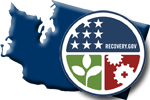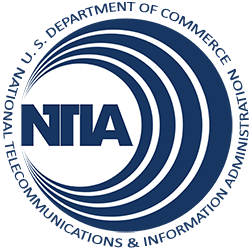Broadband’s ability to expand educational and employment opportunities is especially meaningful for Americans who are deaf or hard of hearing, a community that faces unique challenges in education and that suffers from a rate of unemployment much higher than the national average. Communication Service for the Deaf, Inc. (CSD) intends to expand broadband adoption among people who are deaf and hard of hearing and provide them with online tools to more fully participate in the digital economy. The project proposes to employ a combination of discounted broadband service and specialized computers, technology training from an online state-of-the art support center customized to the community’s needs, public access to videophones at anchor institutions from coast to coast, and a nationwide outreach initiative. Thousands will gain online access to all the Internet has to offer, including sign language interpreters, captioned video services, and other content and functionalities designed especially to advance their educational, employment, and healthcare interests.
Washington

Many low-income families in Washington State report not having access to broadband services, limiting their access to the education, job and health information, and the civic tools that information technology provides. To address this concern, the Puget Sound Center Foundation for Teaching, Learning, and Technology is proposing to expand the capacity of local public computing centers, enhancing broadband adoption, workforce preparation, digital literacy, education, and justice resources and training. The project will serve the unemployed, low-income housing residents, people with disabilities, immigrants, and youth through libraries, non-profits, and justice centers in Washington State. The project proposes to provide GED, ESL and financial educational services to at-risk and economically vulnerable populations, as well as to partner with local businesses to provide “train-the-trainer” services to build capacity at the computer centers. Five rural courts will also serve as computer centers, where residents can apply for public assistance, access online legal resources, government and human resources information, and seek the help of legal volunteers.
Difficult terrain both east and west of the Cascade mountain range has impeded the construction of broadband facilities to local residents and community organizations. NoaNet’s State of Washington Broadband Consortium project aims to deliver enhanced, affordable broadband capabilities to community anchor institutions and local Internet service providers across 25 of Washington’s 39 counties by augmenting NoaNet’s existing fiber-optic network. This project would complement NoaNet’s $84.3M BTOP Round One award that is funding the construction of 831 miles of fiber-optics in southeastern and southwestern Washington. The project intends to support advanced telemedicine services, boost bandwidth available at regional schools that currently suffer from network problems when too many users try to access the Internet at once, and enable public safety entities to access JusticeNet, Washington state’s integrated network supporting state judicial system institutions. The project plans to enhance connectivity to six Indian tribes in the state, including the Tulalip Tribes of Washington, the Kalispell Tribe of Indians, the Yakama Nation, the Lower Elwha Kallam Tribe of Indians, the Suquamish Tribe, and the Port Gamble S’Kallam Tribe of Indians.
The NoaNet project proposes to enhance education and health care access for residents across Washington State by expanding an existing high-speed network with an additional 830 miles of fiber and eight new microwave sites. The expanded network is expected to directly connect 123 anchor institutions in 18 counties, and deliver new and enhanced broadband capabilities to some of the more remote regions of the state. Specifically, the project plans to provide speeds of at least 100 Mbps to 57 libraries, 22 government facilities, 38 medical centers, two tribal service centers, and four community colleges. The project expects to connect the Jamestown S'Klallam tribal center, library and clinic; the Shoalwater tribal center and clinic; and provide connection opportunities for the Makah tribal center and clinic.
The 21st Century Information and Support Ecosystem project proposes to implement a comprehensive program of computer training, wireless Internet access, broadband awareness marketing, and online content and applications to residents of 159 affordable and public housing developments and low-income communities in 50 cities and towns across 31 states and the District of Columbia. The project plans to implement four principal programs: training 2,500 youth to become “Digital Connectors” who will then provide digital literacy training to others in their communities; deploying localized broadband networks in public housing developments; developing online content and applications aimed at low-income, low-literacy audiences.
The Pend Oreille County PUD Broadband Network project plans to bring high-speed, affordable broadband to underserved areas of Pend Oreille County in northeastern Washington State, which borders Idaho and Canada. The proposed fiber-to-the-premises network would deploy approximately 526 miles of fiber-optic cable to deliver last-mile broadband Internet services and facilitate critical network redundancy in this rural area. The project plans to offer affordable, high-speed broadband access to as many as 3,200 households, 360 businesses, and 24 community anchor institutions.
The Spokane Broadband Technology Alliance is proposing a joint Sustainable Broadband Adoption/Public Computer Centers project. The Spokane Broadband Technology Alliance Sustainable Broadband Adoption project, in combination with its associated Public Computer Centers project, plans to train an estimated 12,000 people over three years with an expected broadband adoption rate of 1,500 new broadband users, including 300 small businesses. The project proposes to provide training from basic computer skills to advanced multi-media production, e-commerce, and Internet for small businesses, as well as conduct community-based outreach campaigns to highlight the benefits of broadband for vulnerable populations of Spokane.
The Spokane Broadband Technology Alliance is proposing a joint Sustainable Broadband Adoption/Public Computer Centers project. The Spokane Broadband Technology Alliance Sustainable Broadband Adoption project, in combination with its associated Public Computer Centers project, plans to train an estimated 12,000 people over three years with an expected broadband adoption rate of 1,500 new broadband users, including 300 small businesses. The project proposes to provide training from basic computer skills to advanced multi-media production, e-commerce, and Internet for small businesses, as well as conduct community-based outreach campaigns to highlight the benefits of broadband for vulnerable populations of Spokane.
According to Toledo Telephone, fewer than 50 percent of households in its service area and fewer than 20 percent of the neighboring tribal area subscribe to broadband, and the region has a population that is disproportionately low-income, unemployed, under-educated, and older. The company proposes to increase broadband adoption and economic opportunities in the region by partnering with the Cowlitz Tribe to provide equipment, expand its existing network, and provide education relevant to the Lewis County community and tribal members. Participants will complete a training curriculum to qualify for a subsidized computer that would be provided “on loan” until the end of the two-year training period.
To more fully address root causes of the lack of broadband adoption in the area, Toledo Telephone would offer discounted broadband to enable participants to become home subscribers. The project plans to partner with established institutions in the tribal community, furthering adoption and increasing the program’s effectiveness.
As part of a longstanding project to connect essential community anchor institutions across the country, and facilitate closer collaboration and long-term benefits for education, research, healthcare, public safety, and government services, the University Corporation for Advanced Internet Development (UCAID) proposes a comprehensive 50-state network benefitting approximately 121,000 community anchors. The project proposes a large-scale, public-private partnership to interconnect more than 30 existing research and education networks, creating a dedicated 100-200 Gbps nationwide fiber backbone with 3.2 terabits per second (TBps) total capacity that would enable advanced networking features such as IPv6 and video multicasting. The project plans to connect community anchors across all disciplines into virtual communities with shared goals and objectives, including colleges, universities, libraries, major veterans and other health care facilities, and public safety entities, with additional benefits to tribes, vulnerable populations, and government entities.
Project Components
State Capacity Building:
The Washington Department of Information Services (DIS) plans to expand the activities of the Washington State Broadband Office, which was created with funds from its initial award. The office will establish a state broadband advisory council to focus on improving broadband availability and adoption with anchor institutions, tribes, small businesses, minority populations, and people with disabilities; provide data to state and local policymakers and communities; support the development of partnerships with education; partner with urban hospitals in order to facilitate telehealth development in rural communities; and lead other activities, as determined by the needs of Washington.
Local Regional Technology Planning Teams:
This program will award up to $250,000 annually, over the three-year life of the project, to organizations and entities that establish or support regional broadband planning efforts designed to identify community needs, set goals, articulate performance expectations, and implement strategies to achieve shared goals. Eligible projects and entities will include tribal, public safety, community or regional teams that are multi-disciplinary, with a particular focus on entities that have a history of working with unserved and under-served areas.
Application Development:
The Washington State Broadband Office will establish the Washington ‘Apps to the People’ Contest to increase the amount and quality of publicly available data and improve the tools available to application developers using Washington State data.
Data Collection, Integration, and Validation:
This project was originally funded for broadband planning activities and two years of data collection. In September of 2010, this project was amended to extend data collection activities for an additional three years and to identify and implement best practices.
ZeroDivide’s Generation ZD Digital Literacy Program proposes a major regional training and broadband access program for low-income youth in communities across several Western states that will encourage the development of a new generation of broadband users. The project plans to enhance broadband services and outreach in Humboldt and San Benito counties and San Juan Bautista, California; Salt Lake City, Utah; Maui County, Hawaii; King, Snohomish, Skagit Island and Pierce counties, Washington; Multnomah and Washington counties and Portland, Oregon; and Santa Fe, New Mexico. It will also provide sustainable skills training, skill-sharing, and workforce development programs for the North Coast region of California, including for youth from the Native American Table Bluff Wiyot Tribe, Karuk Tribe, and Hoopa Valley Tribe.
